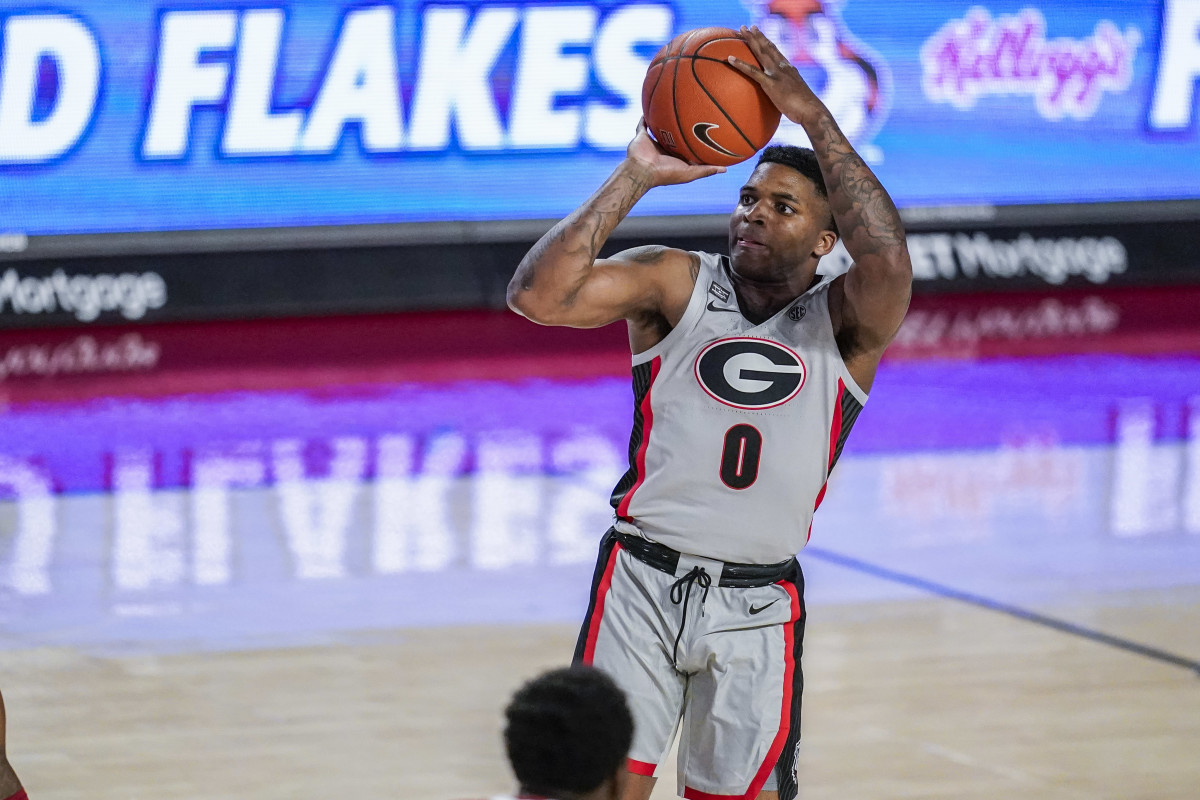Where Did Georgia's Season Go Wrong?
Georgia basketball started the season on a seven-game winning streak, going undefeated in non-conference play for the first time since 1982.
It wasn't quite all downhill from there, but suffice to say, the 2020-21 season ended in disappointment. The Bulldogs finished 7-11 in SEC play, entered the conference tournament as the No. 10 seed, and were eliminated in the second round.
Georgia will have to watch the NCAA Tournament from home, and with the National Invitational Tournament fielding only 16 teams this year, Georgia will likely miss the post-season for the fourth straight year.
So what happened? How did Georgia come up short of its NCAA Tournament goals?

Not adding size or shooting in the 2020 class
Georgia's roster wasn't devoid of talented or skilled players. Sahvir Wheeler is arguably the best point guard in the SEC. Toumani Camara is a solid forward capable of stretching the floor. The three grad transfers were solid players that added much-needed maturity. Tye Fagan and Jaxon Etter are role players any program would be happy to have.
But Georgia didn't add any standout players in last year's class, or at least not any it needed. K.D. Johnson is a magnificent player and Georgia is certainly proud to have him, but the team needed more.
Specifically, Georgia needed a solid big man or a sharpshooter. It needed a player that can create points when the Bulldogs were knocked off their game. Size was more of necessity as Georgia has only two players over 6-foot-9 and neither are ready for SEC play. Plus, a good big man would have allowed Camara to play his natural position.
If size wasn't an option, sharpshooting would have been an excellent consolation. The proof is on the stat sheet. When Georgia excelled from long range, it won games. Defenses were spread out, allowing Wheeler to shred them in the paint. Scoring became easy. However, Georgia didn't have a player it could rely on to shoot consistently from long range every night.

Losing Rayshaun Hammonds
When Georgia failed to add size in the 2020 class, its season was doomed when Hammonds decided to stay in the NBA Draft. Ultimately, Hammonds went undrafted and Georgia entered the year without its reliable big man.
At 6-foot-9 and 235 pounds, Hammonds was exactly the player Georgia was missing. He was hitting his stride late in the 2019-20 season becoming a force on the boards and scoring in double figures every night.
But Hammonds was more than just a big body; he was the senior leader Georgia needed. The graduate transfers added maturity, but they were still newcomers to head coach Tom Crean's program. They didn't know the expectations; they barely knew the philosophy thanks to the pandemic.
Hammonds was a player everyone else looked up to. He was Georgia's representative on the SEC Leadership Council, and he was on the SEC Community Service Team. Whether Georgia signed a big in the 2020 class or not, Hammonds was irreplaceable.

K.D. Johnson missing the first half of the year
The 2020-21 season could have gone a lot better had Johnson not been ruled ineligible by the NCAA. The talented freshman missed Georgia's first 10 games. Since seven of those games were non-conference games, Johnson missed out on valuable chances to get acclimated with the college game.
When Johnson finally debuted against Auburn, his energy and work ethic were clearly on display. He gave Georgia a spark when the team needed it the most. The Bulldogs lost that game 95-77, but they recovered and managed to claw their way back into the NCAA Tournament discussion.
Georgia's first two weeks of SEC play would have gone a lot differently had Johnson been available. That 0-4 start probably becomes a 2-2 since the Bulldogs lost to Mississippi State by only 10 points and they nearly upset LSU in overtime. As a result, the entire season is probably different. Instead of asking what went wrong, we might be cheering about what went right.
